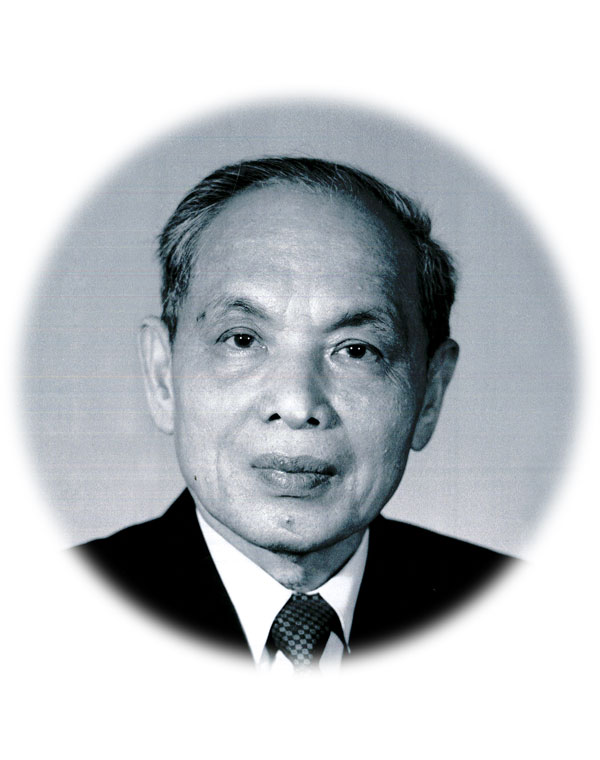


- Proper name: Nguyễn Đình Biền
- Native place: Nghi Thọ commune (now Phúc Thọ
commune), Nghi Lộc district, Nghệ An province
- Positions: Politburo member, Deputy Prime Minister, Minister
of Foreign Affairs
He actively established the Party's foreign affairs policy and
guidelines and the State's foreign affairs policy. In particular,
he made great contributions to the negotiations at the Paris
Conference, forcing the US and the Saigon government to
sign the Paris Agreement (January 23, 1973) on ending the
war and restoring peace in Vietnam.


Taking part in revolutionary activities at the age of 17, he was twice imprisoned by the enemy and exiled to many notorious prisons of the colonists; However, he trained himself to become one of the important cadres of the Party.
Photo: Comrade Nguyễn Duy Trinh was imprisoned in 1927 and was released in 1945
SHOW
During the anti-French and anti-American resistance, Comrade Nguyễn Duy Trinh was assigned to hold many important leadership positions. Facing the new challenges of the April 1965 revolution, President Hồ Chí Minh and the Politburo assigned him to hold the position of Minister of Foreign Affairs.
Photo: Comrade Nguyễn Duy Trinh and Comrade Trường Chinh attended a meeting of President Ho Chi Minh with some members of the third National Assembly on June 27, 1964

As the Minister of Foreign Affairs, Comrade Nguyễn Duy Trinh attended many conferences of the Politburo, the Central Committee and the Government in which he made an important contribution in building and perfecting the party's foreign policy.
Photo: Minister of Foreign Affairs Nguyễn Duy Trinh, February 18, 1968

Minister Nguyễn Duy Trinh had a meeting with Comrade XuKlop Politburo member - Secretary of the Central Committee of the Communist Party of the Soviet Union - In charge of Party work in Moscow, 1972
SHOW
Under the careful direction of Minister Nguyễn Duy Trinh, diplomacy had become a front that closely coordinated with the political and military fronts to carry out raids and negotiations. The success of this coordination was marked by the signing ceremony of the Paris Agreement on Ending the War and Restoring Peace in Vietnam in 1973.
Photo: Minister of Foreign Affairs Nguyễn Duy Trinh arrived at Gaulle airport (France), he was going to attend the signing ceremony of the Paris Agreement, January 25, 1973

Special Advisor Lê Đức Thọ Minister Xuân Thủy, Minister Nguyễn Thị Bình welcomed Minister Nguyễn Duy Trinh at Gaulle airport (France), January 25, 1973
SHOW
The negotiations on Vietnam in Paris took place from May 1968 to January 1973 with more than 200 public sessions, 45 high-level private meetings, 500 press conferences, 1,000 interviews. It was the longest negotiation to end a war in the 20th century, forcing the US to withdraw from the South, and at the same time bringing down America's neo-colonialism, ending the war, and restoring peace in Vietnam.
Photo: The official signing ceremony of the Paris Agreement on Vietnam at the Center for International
Conferences, Paris, the capital of France, on January 27, 1973
Source: Vietnam News Agency

Deputy Prime Minister-cum-Minister of Foreign Affairs Nguyễn Duy Trinh on behalf of the President of the Democratic Republic of Vietnam signed the Paris Agreement on Vietnam, January 27, 1973
SHOW

During the period of national reconstruction, under the leadership of the Party, Comrade Nguyễn Duy Trinh proposed and consistently implemented a foreign policy that focused on independence, self-reliance, international solidarity, and expansion of international relations with countries in the region and around the world.
Photo: Minister Nguyễn Duy Trinh had a talk with United Nations Secretary-General K.Vanhem, 1977
Source: VNA

At the 32nd session of the United Nations General Assembly in New York (USA), the Resolution on recognizing Vietnam as a member of the United Nations was adopted.
Photo: Deputy Prime Minister, Minister of Foreign Affairs Nguyễn Duy Trinh (2nd person as from the right)
attended the Vietnam flag-raising ceremony at the United Nations headquarters, September 20, 1977
Source: Archives of the Ministry of Foreign Affairs
